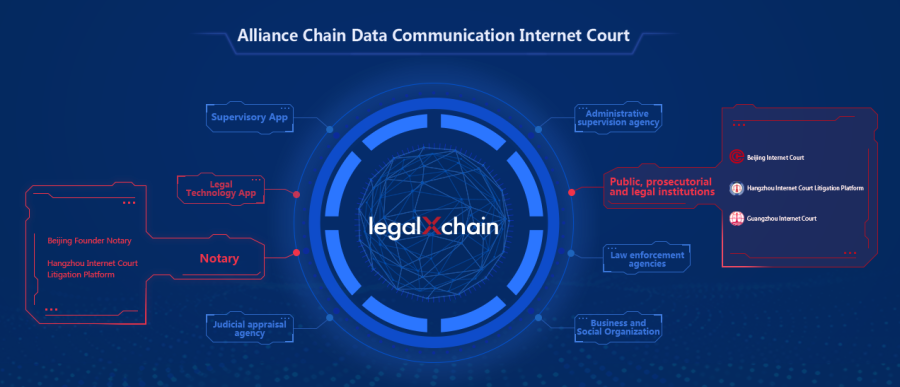The use of public blockchains and cryptocurrency trading have been heavily restricted in China since 2017. However, in 2019, the Chinese government realized that this technology is not only a risk of losing control, but can be very useful. Since then, it has been trying to target blockchain technology to improve cybersecurity and build a stable and secure digital economy.
Meanwhile, research and development and investment in blockchain technologies are encouraged – of course, under the strict supervision of the Cyberspace Administration of China (CAC). All blockchain companies must register their projects with the CAC and are subject to legal requirements, such as those listed in the Blockchain Information Service Management Regulations.
Blockchain applications are particularly prevalent in the areas of finance and government services. For example, the technology is used for court proceedings. Online court proceedings are nothing new in China; they existed before Covid-19 for Internet-related proceedings. The exchange of evidence in an online proceeding is inherently different from offline proceedings, which are still very paper-heavy.
In online proceedings, data can be securely exchanged and processed using blockchain technology on a platform called legalXchain across regions and departments. This platform enables the secure handling of electronic evidence because it not only encrypts it, but also guarantees its integrity and authenticity through the blockchain. The various actors involved in legal proceedings, such as judges, notaries, prosecutors and relevant authorities, can access and use this platform.
The use of blockchain technology in evidence gathering is promising. Its use in Internet courts gives hope that sooner or later it can reduce the cumbersome transportation of thick paper files in offline cases as well.
Graphic: legalXchain


One thought on “Blockchain Makes Evidence Secure”